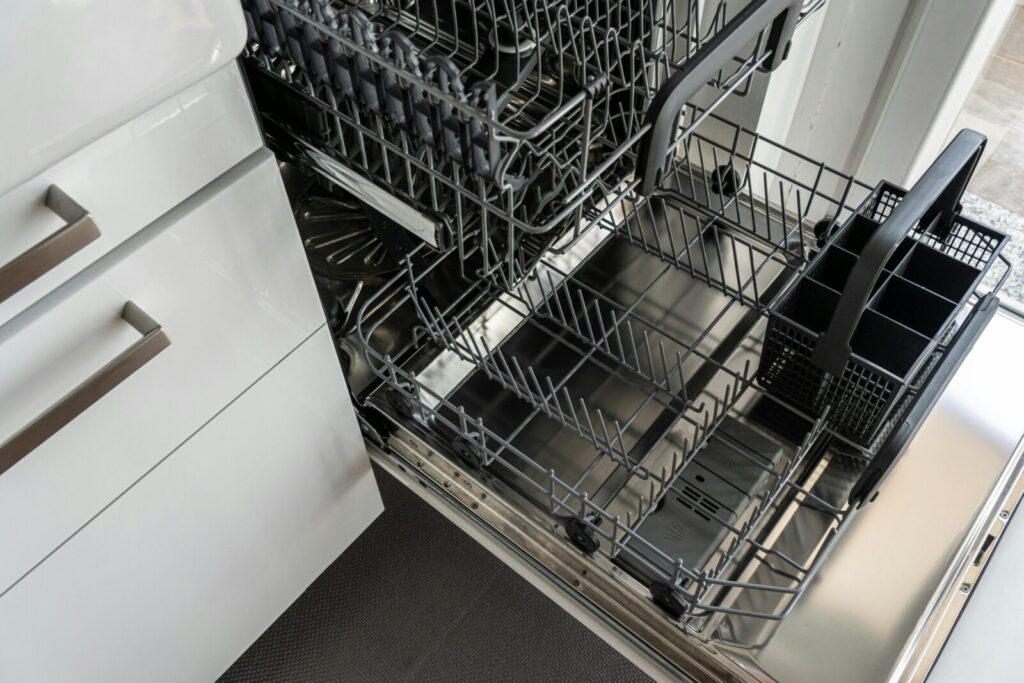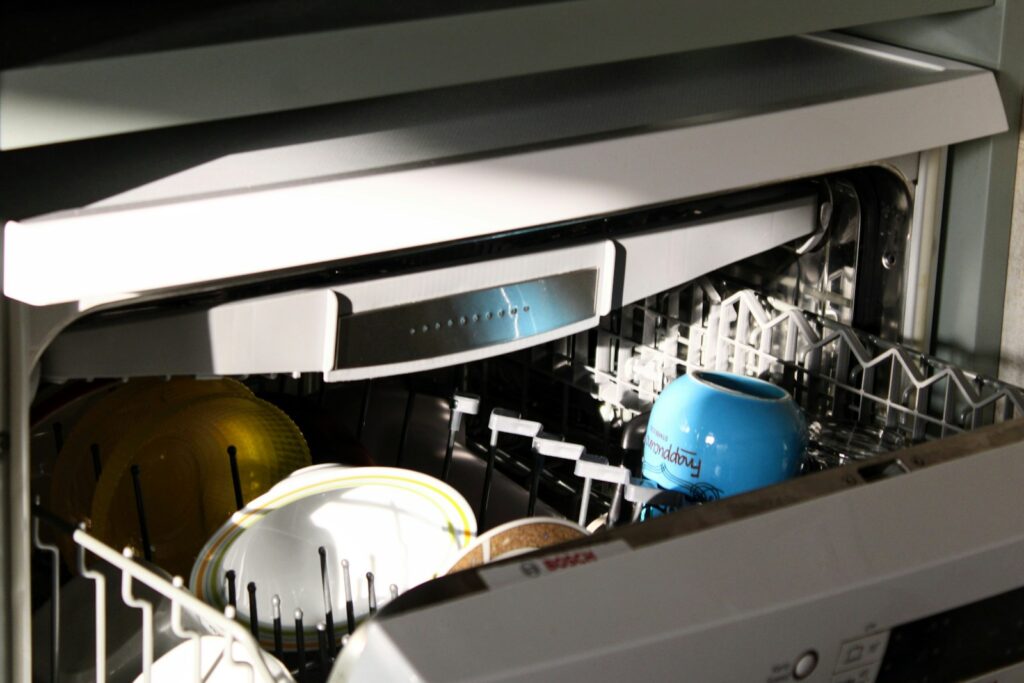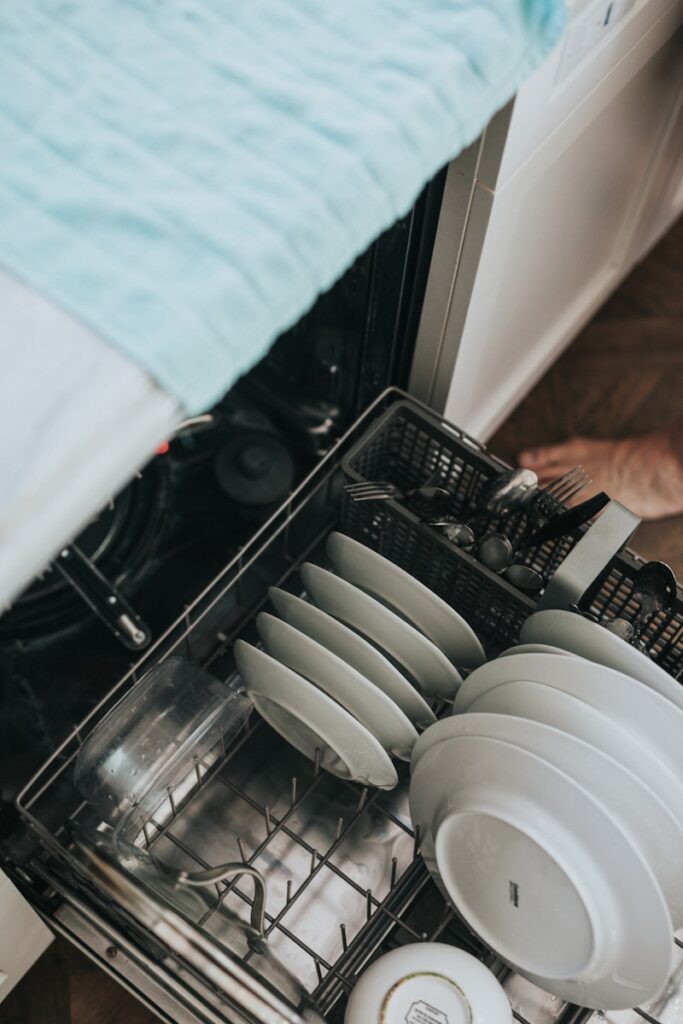Running a dishwasher may seem simple, but timing can make a noticeable difference in your energy bills, household comfort, and appliance efficiency. Many people simply load and start the dishwasher whenever convenient without thinking about electricity rates, noise, or water pressure. Running it at the wrong time can cost more, disturb sleep, or reduce cleaning efficiency. Being mindful of when to run your dishwasher not only helps save money but also extends the life of your appliance. Understanding the worst times of day for dishwasher use allows you to enjoy clean dishes without unnecessary stress or extra costs.
Early Morning During Peak Energy Hours

Running your dishwasher early in the morning can coincide with peak energy hours when many households are using appliances simultaneously. Electricity demand is often highest in the morning as people prepare breakfast, shower, and get ready for work or school. Using the dishwasher at this time can lead to higher utility bills because energy rates are elevated. Additionally, early morning dishwasher cycles may create extra noise that can disturb family members still asleep. Delaying dishwasher use until off-peak hours allows the appliance to operate more efficiently while reducing unnecessary stress on your home’s energy system.
Late at Night When Everyone Is Sleeping
Running the dishwasher late at night may seem convenient, but it can still cause disturbances for those who are trying to sleep. Kitchens located near bedrooms can amplify the sound of water movement, pumps, and vibrations, interrupting restful sleep. Even if the noise is subtle, cycles that start and stop throughout the wash can become a distraction in quiet environments. Late-night operation may also be inconvenient if you need to access the kitchen for snacks, drinks, or cleanup. Choosing a quieter time earlier in the evening can help maintain household comfort and ensure dishes are cleaned without disrupting anyone’s rest. Thoughtful scheduling creates a more peaceful nighttime routine for everyone.
During Lunch Hour, When the Household Water Demand Is High
Dishwasher performance can be affected if household water use is high during busy times like lunch hour. When multiple fixtures such as sinks, showers, or laundry appliances are running at the same time, the dishwasher may receive less consistent water flow. Reduced flow can result in longer cycles and less effective rinsing, leaving dishes with spots or residue. This timing can also slow down kitchen tasks if you need steady water pressure for cooking or cleaning. Running the dishwasher when fewer fixtures are in use helps ensure optimal cleaning results and a smoother household routine. Thoughtful scheduling prevents unnecessary delays and maintains overall efficiency.
Right Before Guests Arrive

Starting a dishwasher immediately before guests arrive is not always ideal because the appliance may produce noise and humidity that can interfere with hosting duties. Kitchens are often central gathering spots, and the sound of a running dishwasher can distract from conversation and preparation. Additionally, loading the dishwasher at the last minute may lead to improperly arranged dishes or skipped items, reducing cleaning effectiveness. Planning dishwasher cycles earlier in the day or after entertaining ensures clean dishes are ready without creating a noisy or chaotic environment. Thoughtful timing contributes to a more relaxed atmosphere for both household members and guests.
During Peak Summer Afternoon Hours
Afternoons in summer can coincide with peak electricity usage due to air conditioning and other household appliances running simultaneously. Using a dishwasher at this time can increase energy bills and add heat to already warm interiors, making your home less comfortable. High energy demand may also affect the dishwasher’s efficiency if voltage fluctuates in older electrical systems. Running the appliance during cooler off-peak hours, such as early morning or late evening, helps reduce strain on the electrical system and keeps your home more comfortable. Proper timing ensures both cost savings and optimal performance from your dishwasher throughout the year.
When Everyone Is Busy With Chores

Running the dishwasher while everyone is busy with other household chores may create unnecessary noise competition and disrupt workflow. Laundry machines, vacuum cleaners, and cooking activities all contribute to a noisy environment. Adding the dishwasher to this mix can make household management more stressful, especially in open-plan homes. Spacing out appliance use allows each task to be completed efficiently without overlapping sounds or interruptions. Scheduling dishwasher cycles when the household is less active ensures that chores are completed with minimal distraction, making cleaning more enjoyable and maintaining a calm atmosphere for everyone in the home.
During Power Outages or Unstable Electrical Supply
Running your dishwasher when the electricity supply is unstable or during a power outage is not recommended because it can interrupt the cycle and potentially damage the appliance. Sudden power loss may stop the dishwasher mid-cycle, leaving dishes dirty and creating the need for additional cleaning. Repeated interruptions can strain the motor and internal components, reducing the lifespan of your appliance. Waiting for stable electrical conditions ensures that your dishwasher operates efficiently and safely. Planning usage around a reliable power supply also avoids frustration and wasted detergent, allowing dishes to come out clean every time without unnecessary stress or complications.
While Cooking Meals That Require Extended Stove Use
Running the dishwasher while preparing meals on the stove for an extended period can create heat and humidity conflicts in the kitchen. Heat from cooking may affect the dishwasher’s internal temperature sensors, slightly impacting performance. Additionally, overlapping appliance use can make the kitchen environment uncomfortable, especially during hot seasons. Coordinating dishwasher cycles either before or after major cooking sessions ensures dishes are cleaned efficiently without adding extra heat or distractions. Thoughtful scheduling allows for smoother kitchen workflow, reduces energy strain, and creates a more pleasant cooking and cleaning experience for everyone in the household.
Comments